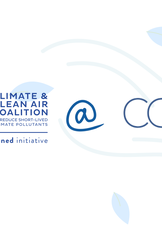Food systems are both a major source of super pollutant emissions and among the sectors most affected by climate change and air pollution. From farm to fork, food production and consumption generate methane, black carbon, nitrous oxide, and HFCs—emissions that threaten crop yields and air quality.
At the same time, nearly one-third of all food produced globally is lost or wasted, often ending up in landfills where it emits methane and squanders valuable nutrients. Preventing food loss and waste, redistributing edible food, and recycling organics into soil-enhancing inputs can reduce greenhouse gases, improve air quality, and strengthen food security.
This session will unite government leaders, experts, and practitioners to explore circular approaches for managing organic waste. Discussions will focus on scaling solutions that support the COP29 Reducing Organic Waste (ROW) Methane Declaration, reduce reliance on synthetic fertilizers, and advance the CCAC’s Agriculture Flagship objectives—turning waste into a valuable resource for climate and clean air action.
